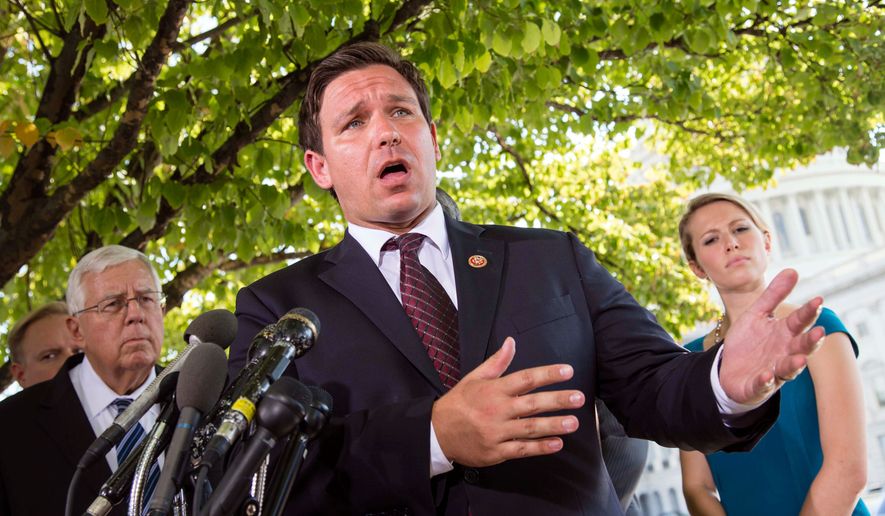Senate Republicans’ vote this week to make their staffers use the Obamacare exchanges has put the spotlight on their House colleagues, who refused to do the same in a vote earlier this year, leaving them in a tenuous political position.
The issue presents a disconnect between GOP lawmakers on the Affordable Care Act — a law they hate equally, and hope to dismantle in the next Congress. But some House Republicans believe they’ve hurt their own moral standing by carving some of their staffers out of the exchanges.
“I think it makes us look bad,” said Rep. Ron DeSantis, a Florida Republican who championed the change in the House.
His proposal was defeated in a closed-door meeting last month.
The Affordable Care Act of 2010 required members of Congress and staff who wanted insurance through their jobs to enter the same exchanges they were imposing on millions of other Americans.
But fearing good staffers would leave, some lawmakers chose to only designate some of their employees as “official.” Those who escaped that designation are still allowed to get coverage under the regular federal employees program, which is considered quite generous.
Mr. DeSantis said opponents of his proposal said they were afraid valuable committee staffers would be affected too, or they argued they’d opposed Obamacare in the first place, and so they shouldn’t have to force their workers to abide by it. But Mr. DeSantis said those were unacceptable excuses, particularly since House Republicans are suing President Obama for stepping around the letter of the law.
“You, as a member, are not abiding by it,” he said.
Mr. DeSantis said House Speaker John A. Boehner, Ohio Republican, did not voice support for his proposed rule.
A spokesman for Mr. Boehner said Thursday that the leader’s staff members are in the exchanges but did not say whether the speaker’s stance has changed after the Senate vote.
Senate Republicans approved their change in a voice vote, accepting a resolution offered by Sen. David Vitter of Louisiana, who, despite his distaste for Obamacare, has made it his personal mission to make sure lawmakers follow it religiously.
Mr. Vitter’s resolution also challenged Senate Democrats to follow suit.
But Democrats said they were steeped in last-minute negotiations to fund the government Thursday, and hadn’t given Mr. Vitter’s challenge much thought.
“That’s the furthest thing from our problems right now,” Sen. Joe Manchin III, West Virginia Democrat, said.
Sen. Christopher Murphy, Connecticut Democrat and vocal champion of Obamacare, said he hadn’t considered it either, but noted that he and his staff are satisfied with the exchanges.
“I’ve found it to be really good insurance for me and my family,” he said.
In the House, Mr. DeSantis said he is unsure when he can get another crack at conference rules, although introducing a bill is another option.
Mr. DeSantis and Mr. Vitter also want to take aim at an administration ruling that allows lawmakers and staff to continue to collect a federal subsidy that pays up to 75 percent of their health premiums if they buy insurance on a D.C. exchange.
The two lawmakers said regular Americans don’t get that benefit, so neither should members of Congress, their employees or top officials in the executive branch.
“The biggest issue is that senators and members should not be subsidized for their insurance,” Rep. Michael C. Burgess, Texas Republican, said. “That’s preposterous.”
Some GOP lawmakers preferred the broad view, suggesting that if Obamacare goes away, so do all of these tricky debates.
Rep. Trent Franks, Arizona Republican, said the law is so flawed that a “logical implementation on the congressional level, the private level or any other level is absurd, so no wonder there’s confusion.”
Asked if he and his staff members were on the exchanges, he said, “I’m not going to speak to all that.”
• Tom Howell Jr. can be reached at thowell@washingtontimes.com.




Please read our comment policy before commenting.